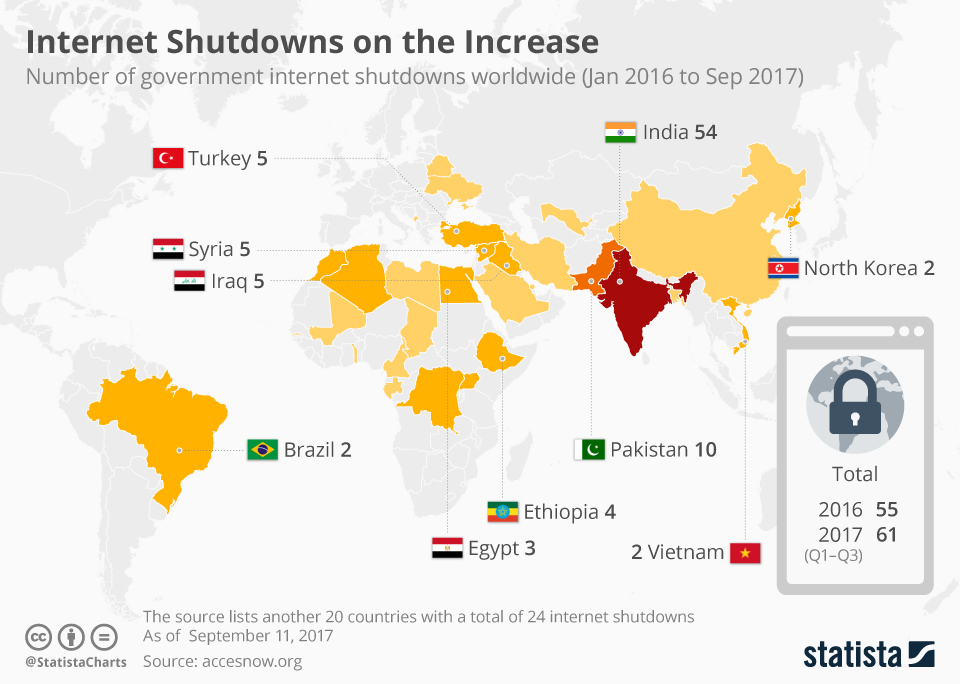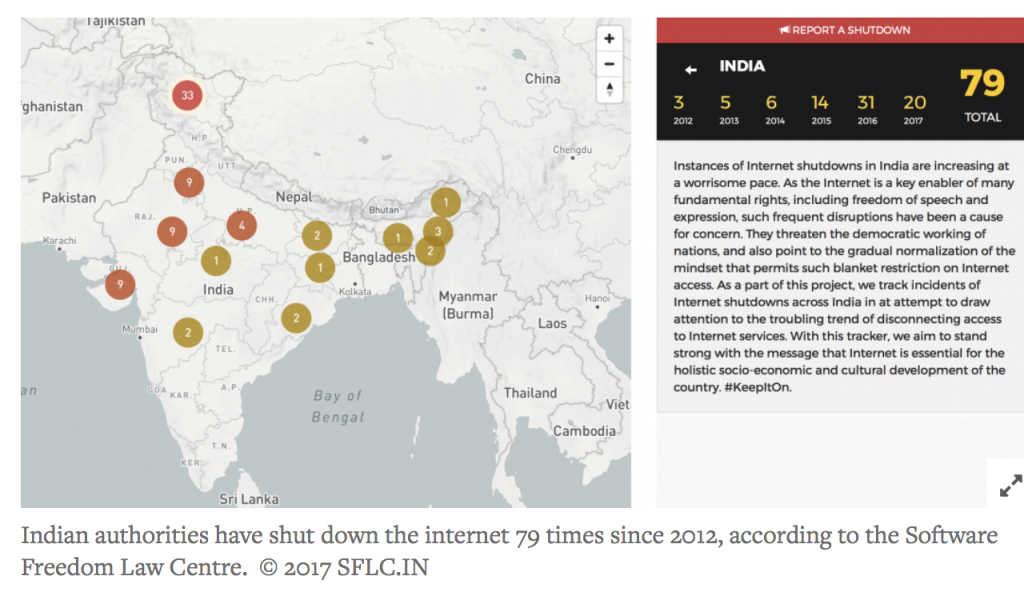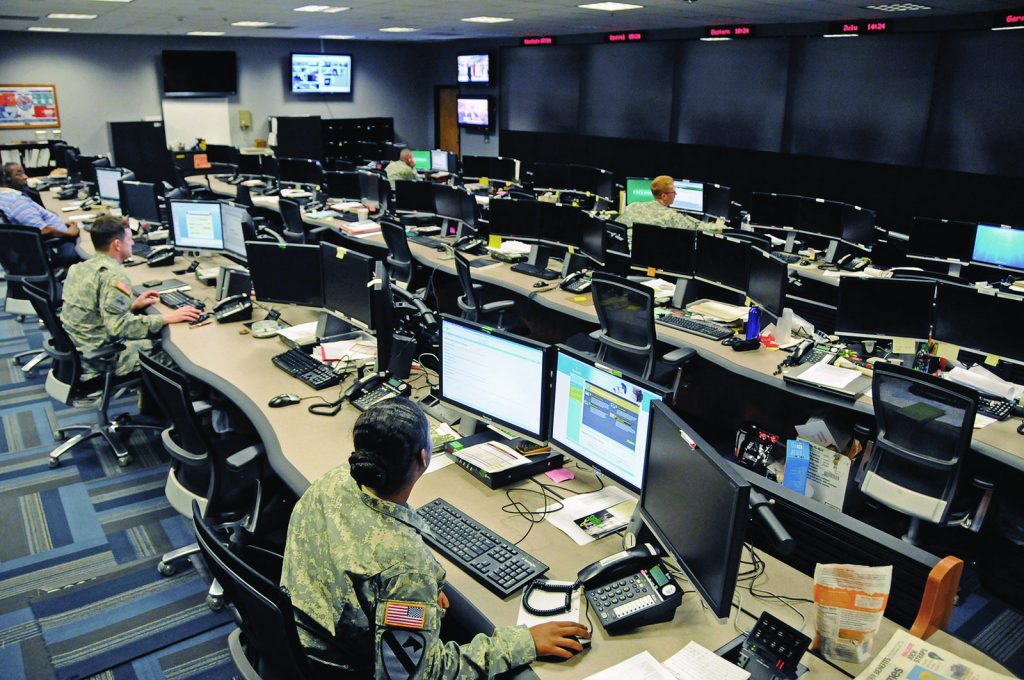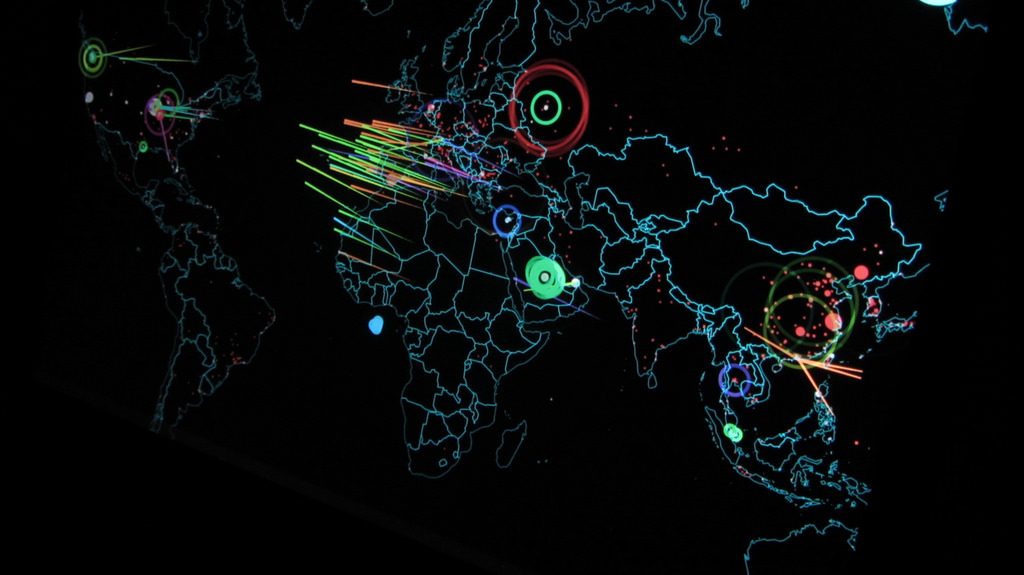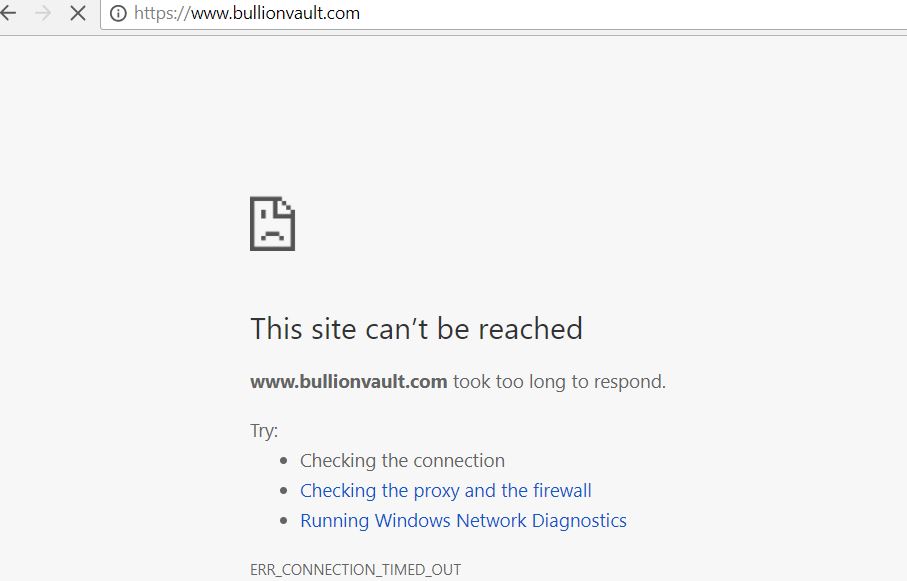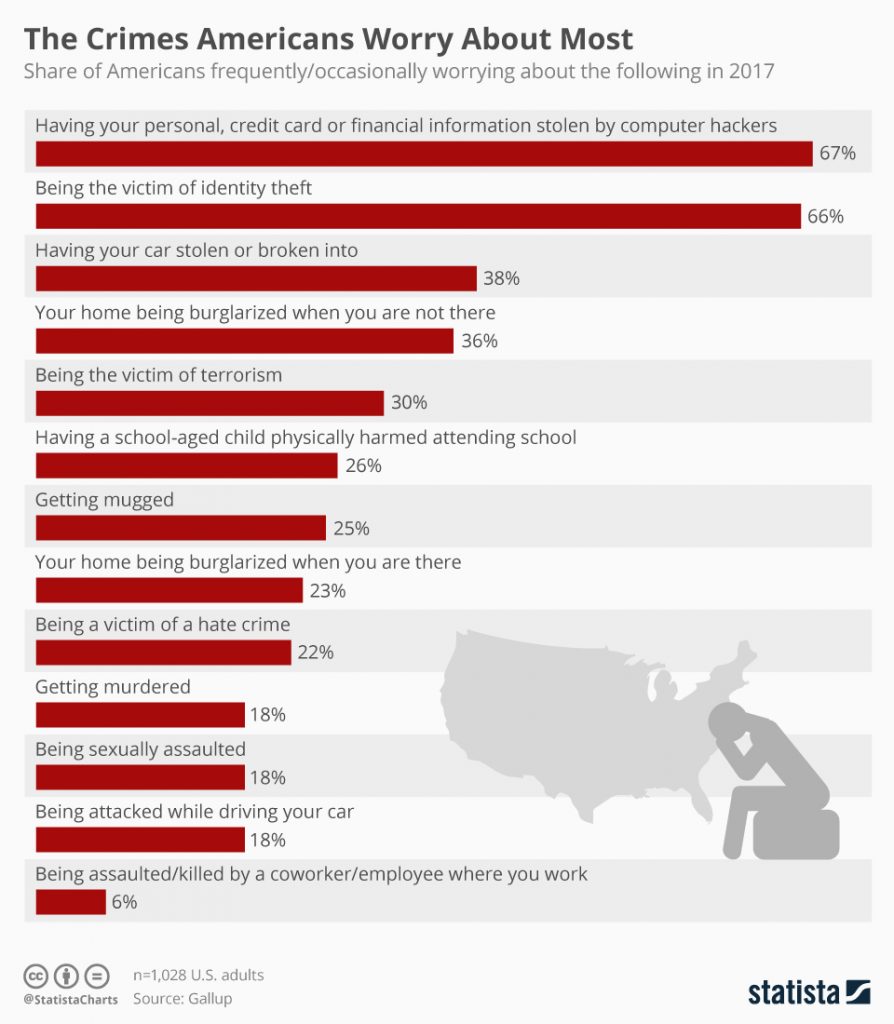– Internet shutdowns (116 in two years) show physical gold is ultimate protection – Number of internet shutdowns increased in 2017 as 30 countries hit by shutdowns – Democratic India experienced 54 internet shutdowns in last two years; Brazil 2– EU country Estonia, a technologically advanced nation, experienced a shutdown – Gallup poll shows Americans more worried about cybercrime than violent crime – Governments use terrorist threat as reason for internet kill switch powers – Own physical coins and bars rather than digital gold on a single platform - Click to enlarge UNESCO is warning that the number of internet shutdowns is increasing worldwide. According to Statista.com when reporting data provided by
Topics:
Jan Skoyles considers the following as important: Daily Market Update, Featured, GoldCore, newslettersent
This could be interesting, too:
Nachrichten Ticker - www.finanzen.ch writes Die Performance der Kryptowährungen in KW 9: Das hat sich bei Bitcoin, Ether & Co. getan
Nachrichten Ticker - www.finanzen.ch writes Wer verbirgt sich hinter der Ethereum-Technologie?
Marc Chandler writes March 2025 Monthly
Mark Thornton writes Is Amazon a Union-Busting Leviathan?
| – Internet shutdowns (116 in two years) show physical gold is ultimate protection – Number of internet shutdowns increased in 2017 as 30 countries hit by shutdowns – Democratic India experienced 54 internet shutdowns in last two years; Brazil 2 – EU country Estonia, a technologically advanced nation, experienced a shutdown – Gallup poll shows Americans more worried about cybercrime than violent crime – Governments use terrorist threat as reason for internet kill switch powers – Own physical coins and bars rather than digital gold on a single platform |
|
| UNESCO is warning that the number of internet shutdowns is increasing worldwide. According to Statista.com when reporting data provided by digital rights platform accessnow.org, “internet access has been curbed 116 times in 30 countries since January 2016.”
“Internet shutdown: An intentional disruption of Internet or electronic communications, rendering them inaccessible or effectively unusable, for a specific population or within a location, often to exert control over the flow of information.” – Access Now. One question that so many ask when first hearing about bitcoin is ‘what if the internet stops working?’ Bitcoin and crypto proponents scoff and point out that there is no singular ‘off button’ i.e. it would be near impossible. According to ‘father of the internet’ Tim Berners-Lee, this is true:
Try telling that to the one billion plus people in India who have experienced over 54 internet shutdowns in the last two years. Or those in Egypt who on January 27th 2011 could no longer get online as the government shut down the internet in response to the pre-Arab Spring protests. Even in the EU, ten years ago technologically advanced Estonia appears to have been a victim of Kremlin-sponsored cyber warfare, when Estonians found they could no longer access their bank accounts. Individuals and companies could not use their computers for the simple daily tasks that we take for granted today – such as email. The above three examples are not rare occurrences. In the last two years alone there have been 116 situations where governments or state sponsored hackers seem to have found the ‘off button’ for the internet across 30 countries. That’s not counting all of the incidences when there have been other cyber attacks that have ‘merely’ affected vital internal systems and disrupted key infrastructure for large sections of society. So whilst countries might be more connected than ever, that isn’t much help to the citizens who find themselves very much disconnected whether on a mass or individual scale. Internet shutdown is definitely possible and it is happening:
This isn’t just a disaster for those using bitcoin, this is a disaster for anyone who relies on an internet connection be it for communication or accessing their finances. Many in the West look at internet controls as something that is exclusive to developing nations or those more on the totalitarian-regime end of the political spectrum. Sadly this is not the case. As you will see government-sanctioned internet shutdown and cyberterrorism are ever-present across many nations. The result? Individuals must protect their own freedom and safety of their assets as the authorities may have other priorities. Internet shutdown increases government powers |
|
As the examples of India, Estonia and Egypt show internet shutdown is very much possible. It was the Egyptian shutdown of 2011 that prompted many other governments to realise the powers they could attain:
Internet shutdowns can be either at the will of the domestic government or a form of financial or military warfare from an outside authority or organisation. India is where we see the highest number of authorised internet blackouts. Here government policy states that whilst such action requires the highest-level official in charge of domestic security – the Ministry of Home Affairs for the whole country or a state’s Home Department official – to sign off on any shutdown a junior member can shutdown the internet for a full 24-hours should gaining permission be unfeasible. Many in Western countries might dismiss such government behaviour as perhaps a feature of developing nations or despot-led countries. Not so. In the UK the Communications Act 2003 and the Civil Contingencies Act 2004 gives internet suspension powers to the Secretary of State for Culture, Media and Sport. This can be done either by ordering the shutdown of operations by internet service providers or by closing exchange points. When questioned about such a power a government representative said that it would have to be a very exceptional circumstance that led to the shutdown of the internet. However, those circumstances have not been specified and therefore cannot be challenged. Who is to say from one government to the next or one perceived threat to the next what an ‘exceptional circumstance’ is? One person’s exceptional circumstances differ to another’s. For example, it’s interesting that in India the majority of shutdowns happen in Kashmir, the region which is heavily involved in a political border dispute. The same goes for Turkey which since 2016 has allowed authorities to implement an internet ‘kill switch’ to “partially or entirely” suspend internet access when deemed necessary. In most countries government-sanctioned internet shutdown is now part and parcel of policy. More often than not they are justified by their use in protecting citizens. However, as Deji Bryce Olukotun, Senior Global Advocacy Manager at Access Now explains:
Internet access: a human right There are 3.5 billion internet users around the world, approximately 50% of the global population. It is therefore unsurprising that internet use is increasingly considered to be a human right by many.
Where there is internet access managing your day and business online is just an accepted fact of life, particularly in developed countries. When indicators such as the political, economic and social impact of the web, connectivity and use are considered the UK and US are ranked in the top three for web use by citizens.
One would also assume therefore that our governments understand the importance of internet security and have several measures in place to prevent the likes of military-level cyber attacks or DDOS attacks from terrorist organisations. Not so, the most progress that has been made by Western governments in recent years has been in regard to how much control they have over the internet as shown by the aforementioned policies. |
|
| Do companies and governments even care?
Ten years ago Estonia experienced what appears to have been a state-sponsored cyberattack of unimaginable proportions. Citizens found they were unable to access bank accounts, websites, social media and infrastructure began to fall apart such as traffic lights no longer working. This was not down to an internal failure. It was quickly clear that there had been an attack from outside the country. It was a Distributed Denial of Service Attack — an orchestrated swarm of internet traffic that swamps servers and shuts down websites for hours or even days.
The Estonian government reacted in a manner that other governments should have been proud to follow. They used it as a step to up foreign policy and gain immense understanding and training on all matters of cybersecurity. The attack on Estonia may have been Russia telling the rest of the world that it had the capabilities to bring a country to its knees should they be displeased. |
|
Internet shutdowns are serious. A cyberattack or a government-sanctioned internet shutdowns due to a perceived threat could have dire financial consequences:
But this isn’t just about disaster at a government and national level. Consider businesses and the impact on their operations. How many organisations assume internet access is a given? How many base their business offering on the existence of customers being online? Dangers of Digital Gold Consider companies that offer digital gold an an investment or store of value. These electronic platforms offer investors access to pooled gold in large gold bar format. Investors do not know which part of a particular gold bar they own. Sometimes such investments are mis-labelled as allocated gold. Not only this, but these platforms are “closed loop systems”. This means liquidity and pricing are dependent on a single platform, website and company. The investor is in effect “captive” as they would be to a bank account or having to deal with one single stockbroker. Should the company be acquired by a bank, venture capitalists or other institution, the spread between buy and sell and overall costs could rise. The client would have no choice but to accept the increased charges. |
|
| How would this work in the event of a cyber attack and or internet shutdowns? Your digital gold would be about as much use as the cash in the bank account you can’t access, as ATMs would also be down and online banking is not online.
We are in no way casting aspersions as to the good name of BullionVault.com or other digital gold platforms. We have a lot of respect for them and what they have achieved. However, we view them as a great way for people to speculate on gold, silver and platinum and go long and short, rather than as providers of financial insurance and safe haven long term investments. The point we are making is that investors concerned about systemic risk, including cyber risk, should consider the cyber and electronic threats to their investments – with whatever provider they may be with. Higher rate of victimisation: don’t be a statistic |
|
| 67% of Americans are more worried about cyberattacks than physical theft and attacks. Why is this? Most likely because few know where to turn in order to protect themselves. It is not an irrational fear.
Even if you live in a country that was not victim to an internet shutdown, consider the following relevant information: – According to a study by Incapsula 30.5% of non-human web traffic is compromised of ‘bad bots’. These bots are responsible for stealing data and distributing malware. Individuals must take their own precautions, both at a computer security level but also in terms of personal assets.
Internet shutdowns and cybersecurity attacks compromise our democratic freedoms. The shutdown of the internet by governments should only be allowed in the most extreme of cases. Sadly as we see in the likes of India it is often used as a first response. |
When our democratic freedoms are threatened it means our financial ones are also at risk. Many savers and investors consider these threats and choose to diversify their portfolios. They spread the risk and hedge their bets against such events.
This is a sensible first step, however it can be rendered pointless if your management of your assets is reliant on internet access. Gold has been bought by millions all over the world because of its role in protecting investors during times of war, financial hardship and economic disasters. It is only recently that the idea of cyber warfare and the misuse of this power by governments has become a point of consideration.
Gold is as relevant here as it always has been. But it is specifically allocated, segregated physical gold which must be considered.
Owning gold coins and bars either in one’s possession or in allocated and segregated storage will protect people and will be accessible and liquid should an internet shutdown be triggered in your country tomorrow.
Tags: Daily Market Update,Featured,newslettersent

